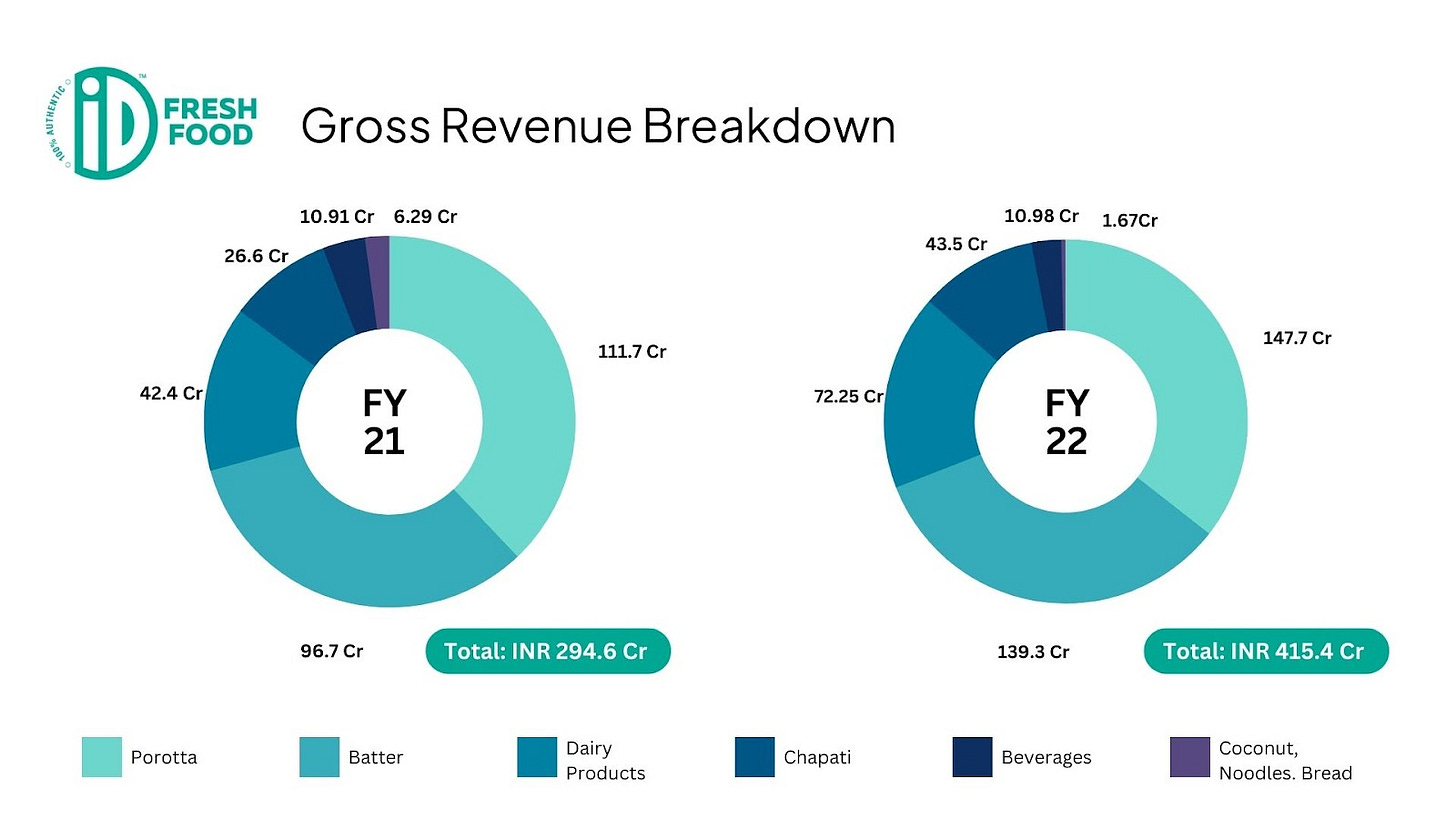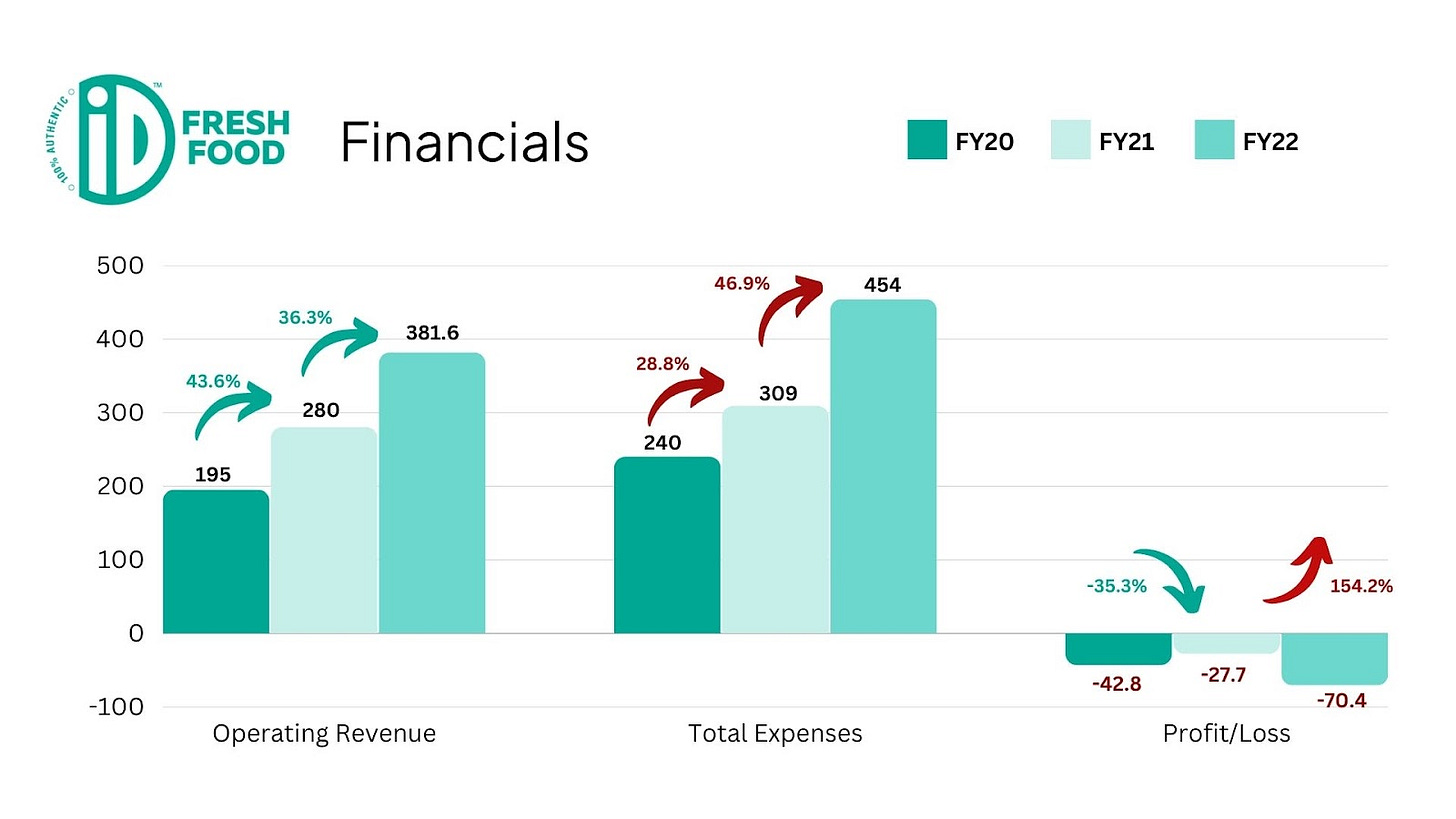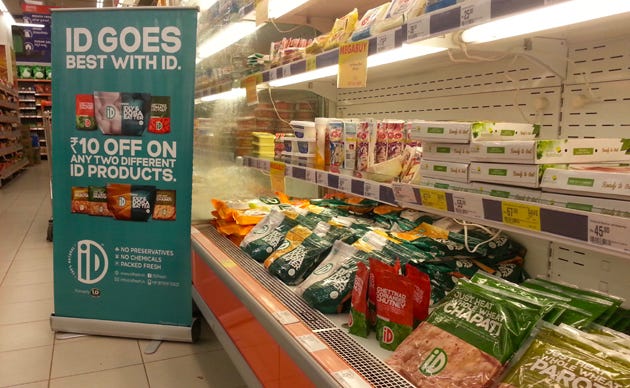iD Fresh Food: All Things Numbers & Technology
Brand Breakdown is Shopflo’s monthly 4-part newsletter, in which we deep dive into an Indian D2C brand, and understand its constituent elements to figure out what makes it tick ⏰
When you think dosa batter, few think beyond ID. A staple in Indian refrigerators, this is a brand that took a food item that was traditionally made at home, and standardized it for the masses. iD has been a debt free-company from the get-go. This week, we understand how the brand uses their investments, and how they manage to maintain freshness while running a zero-inventory model.
In the previous weeks articles, we’ve read the wonderful story behind the creation of iD, the ups and downs the company went through, and the innovative packaging that sets them apart. As we reach the last newsletter in the iD series, let’s kick it off by taking a look at the numbers.
A zero debt company, iD used it’s investments to scale operations
Although iD officially began operations in 2005, it took them 9 whole years to get an investor. A $5.2 million Series A Funding from Helion Ventures, followed by a $25 million investment from PremjiInvest, the private investment firm of Wipro Ltd chairman Azim Premji allowed them to move beyond Bengaluru and expand throughout India.
In 2013, they ventured into the UAE where they identified a huge target market in the Indian community settled there, and the area soon became their no.1 market in terms of revenue. “We understand the pangs of being away from home, in a foreign land. If familiar, home-cooked foods can bring joy and comfort in our fast-paced lives, we want to make that sense of happiness and wellbeing accessible and affordable for all. Just like it is made back at home.” said Musthafa.
In a Series D funding in 2022, NewQuest Capital Partners, a private equity firm focused on emerging markets invested almost $68 million along with PremjiInvest. This round also saw the exit of Helion Ventures, their first investor. iD was their last exit in India and they left with a 10x return after a seven year investment.
iD plans on using the funding to establish new manufacturing plants across the globe. In 2021, they launched the world’s largest idli-dosa factory at Anekal in Karnataka. Its fully automated Giant Kitchen produces over 1 lakh kg batter and three lakh parotas per day. They currently have factories in Bengaluru, Mumbai, Hyderabad and Dubai, and are looking to open three factories in the US soon.
How iD leverages technology to ensure freshness
iD identified early on that consumers considered products with a shorter shelf life to be healthier. “We understood the customer mindset that motivated us to play with ideal shelf-life to bring to market the right products for Indian homes," Musthafa says. As a company that has positioned themselves as one with 100% natural, fresh products, maintaining high quality becomes equally tough and important.
iD supplies to over 30,000 retail outlets. To run on a zero-inventory model, and supply to the right place at the right time, they leverage AI and ML technologies. Each store is integrated and geo-tagged, which helps the company with logistics, route optimization and freshness at scale. “The challenge is to have intelligence that detects and comprehends fast-changing, short-term variables along with slow-moving directional trends,” says Sujeeth Ravindran, CTO, iD Fresh Food.
Considering iD’s high scale operations, the impact this technology-led approach has had is massive. The company has seen a 20% reduction in stock-out losses, 10% reduction in closing inventory, and 30% reduction in food wastage. “We use Kronoscope, a Fountain9 advanced solution, to help us with daily demand predictions and replenishment planning at all levels, and offer the same intelligence to all teams across the business, from a common base,” adds Mr. Ravindran.
Even with this heavy involvement of technology, the need for a human interface isn’t overlooked at iD. Since many time intensive tasks are already taken care of, the team has the scope to better utilize their time to address other critical issues, and respond to queries in real time.
“iD runs on IT. We are not just a batter company, we are a fresh food distribution company that runs on technology” says Musthafa

The future looks good?
Currently the company produces enough batter to make more than 1.5 million idlis every day, and they are expected to close FY22 at an annualized run-rate of ₹550 crore. "In two years time we should be a ₹1,000 crore company, 50% of which will come from international markets."
When a company seems to be doing so well, the next question in everyone’s mind revolves around IPO plans. However, iD seems to not be in a rush to jump into that bandwagon. “Not immediately. It is too early.”
This story of a batter company started by the son of a coolie who failed school, and overcame numerous hurdles to become a loved and respected brand in India and abroad, seems straight out of a business fairytale. As the company scales up and makes its mark in new countries, it’ll be interesting to see how they maintain this winning streak.
With that we wrap up iD’s Brand Breakdown. You can find the previous parts of the series here.
Coming up, we’ll be a covering a brand that is at the intersection of derma, skin care, and hair care, with a unique proposition built on a keen market insight. Stay tuned.
Write back to us for any suggestions, feedback, or collaborations! Happy to connect





